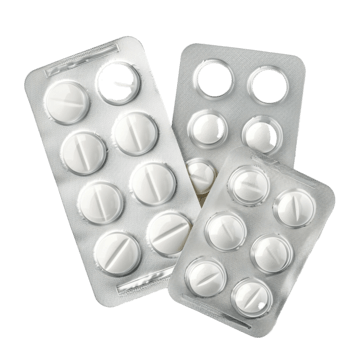Naproxen

Naproxen 250mg, 500mg
Naproxen is a nonsteroidal anti-inflammatory drug (NSAID) used to relieve pain, reduce inflammation, and lower fever. It works by blocking the production of certain chemicals in the body that cause inflammation and pain. Commonly prescribed for conditions such as arthritis, menstrual cramps, and other acute pain conditions, Naproxen provides effective relief for various forms of discomfort without the need for opioids.
Order NowDescription
Naproxen is a nonsteroidal anti-inflammatory drug (NSAID) used to relieve pain, reduce inflammation, and lower fever. By inhibiting the production of certain chemicals (prostaglandins) that cause inflammation and pain, Naproxen helps to alleviate discomfort associated with various conditions.
Uses / Indications
- Acute pain relief (e.g., headache, toothache)
- Chronic conditions such as arthritis (rheumatoid arthritis, osteoarthritis)
- Menstrual pain (dysmenorrhea)
- Muscle pain and spasms
- Tendinitis and bursitis
- Fever reduction
Dosage and Administration
Adults:
Start with 250 mg to 500 mg every 12 hours as needed. Do not exceed 1000 mg in a 24-hour period without a doctor’s supervision.
Children (age 2 years and older):
Dosing is based on weight and must be determined by a physician. Use caution and consult a healthcare provider.
Note: Dosage may vary based on specific medical conditions or doctor’s guidance.
How It Works (Mechanism of Action)
Naproxen works by inhibiting the activity of enzymes known as cyclooxygenases (COX-1 and COX-2). This action reduces the formation of prostaglandins, which are responsible for pain, fever, and inflammation. By lowering prostaglandin levels, Naproxen effectively decreases pain and swelling in the affected areas.
Side Effects
Common side effects:
- Nausea or upset stomach
- Headache
- Dizziness
- Rash or itching
Rare/serious side effects:
- Gastrointestinal bleeding or ulcers
- Severe allergic reactions (swelling, difficulty breathing)
- Kidney problems (changes in urine output)
Seek medical attention if serious side effects occur.
Precautions / Warnings
- Discuss any history of heart disease, kidney disease, or gastrointestinal problems with your doctor.
- Use caution if pregnant or breastfeeding; consult a healthcare provider.
- Avoid taking with alcohol or other NSAIDs to minimize the risk of gastrointestinal effects.
Drug Interactions
May interact with:
- Anticoagulants (e.g., warfarin) – increased bleeding risk
- Other NSAIDs or corticosteroids
- Certain blood pressure medications
- Some antidepressants (e.g., SSRIs)
Always inform your healthcare provider about any other medications or supplements you’re taking.
Storage Instructions
- Store at room temperature (20°C–25°C / 68°F–77°F)
- Keep away from moisture, heat, and direct light
- Keep out of reach of children
Missed Dose / Overdose
Missed a dose?
Take it as soon as you remember. If it’s close to the time for your next dose, skip the missed one. Do not double up.
Overdose symptoms:
- Severe drowsiness
- Nausea or vomiting
- Stomach pain
- Rapid breathing
Contact a poison control center or seek emergency medical help immediately.
Contraindications
- Allergic to Naproxen or any component of the formulation
- History of severe allergic reactions to NSAIDs
- Active peptic ulcer disease or gastrointestinal bleeding
Brand Names / Alternatives
- Aleve
- Naprosyn
- Anaprox
- Generic name: Naproxen

